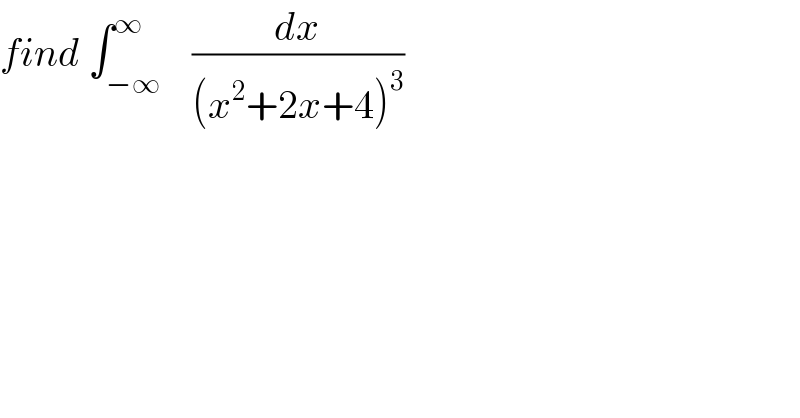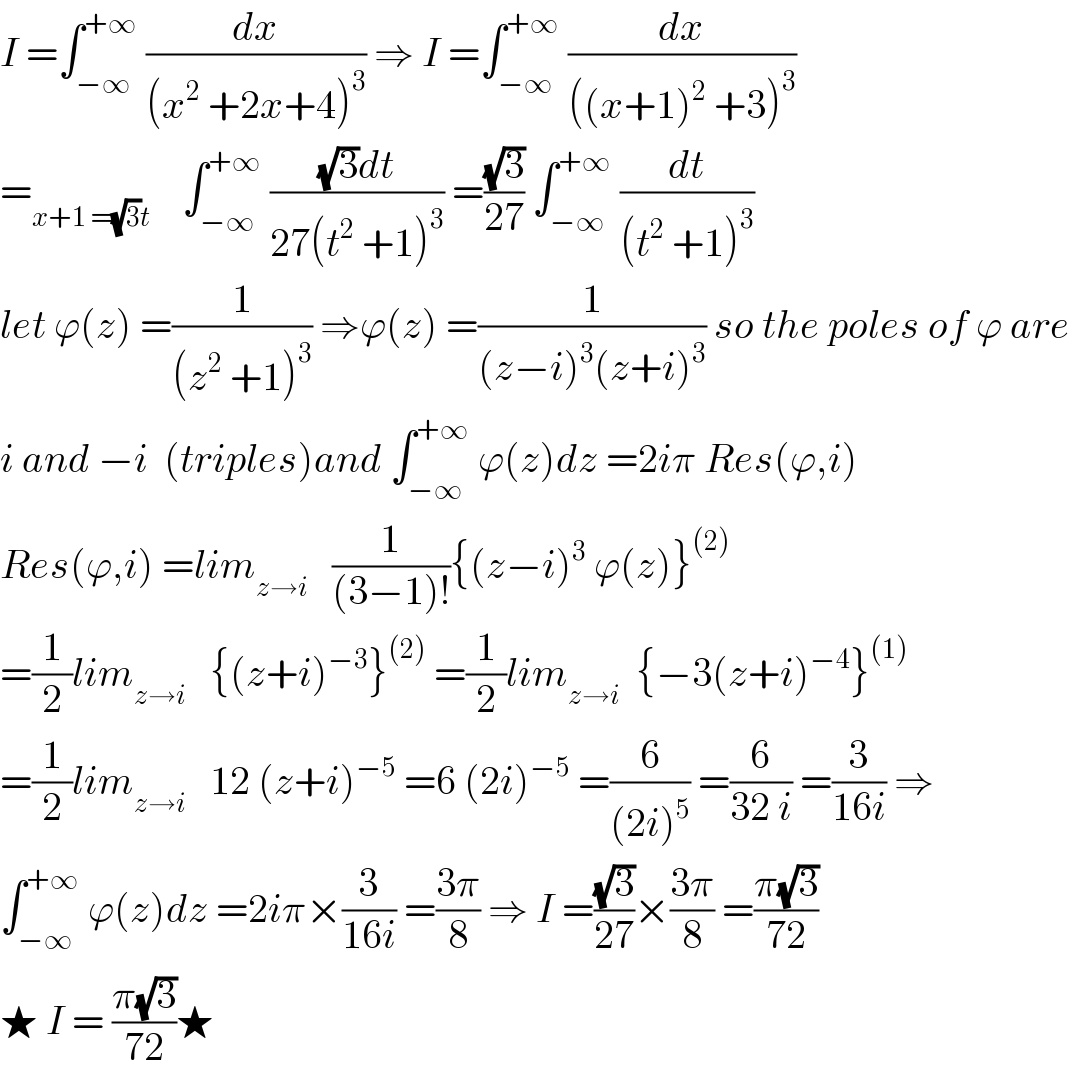
Question and Answers Forum
Question Number 93873 by mathmax by abdo last updated on 15/May/20

Commented by mathmax by abdo last updated on 16/May/20

Answered by Ar Brandon last updated on 15/May/20
![L_n =∫((Ax+B)/((x^2 +px+q)^n ))dx⇒L_n =(B−((Ap)/2))∫_(−∞) ^(+∞) (1/([(x+(p/2))^2 +((√(q−(p^2 /4))))^2 ]^n ))dx A=0, B=1, p=2, q=4, n=3 ⇒L_3 =∫_(−∞) ^(+∞) (dx/((x^2 +2x+4)^3 ))=∫_(−∞) ^(+∞) (dx/([(x+1)^2 +((√3))^2 ]^3 )) J_n =∫_(−∞) ^(+∞) (1/([x^2 +u^2 ]^n ))dx⇒J_n =((2n−3)/(2u^2 (n−1)))J_(n−1) J_1 =∫_(−∞) ^(+∞) (dx/((x+1)^2 +((√3))^2 ))=((√3)/3)⌊tan^(−1) [((x+1)/(√3))]⌋_(−∞) ^(+∞) =((π(√3))/3) J_2 =((π(√3))/(18))⇒J_3 =(3/(12))∙((π(√3))/(18))=((π(√3))/(72)) ∫_(−∞) ^(+∞) (dx/((x^2 +2x+4)^3 ))=((π(√3))/(72))](Q93884.png)
Commented by Ar Brandon last updated on 15/May/20
In case of necessity please check my solution to Q.93639 for Ln and Jn ��
Commented by mathmax by abdo last updated on 16/May/20

Commented by Ar Brandon last updated on 16/May/20
cheers ��
